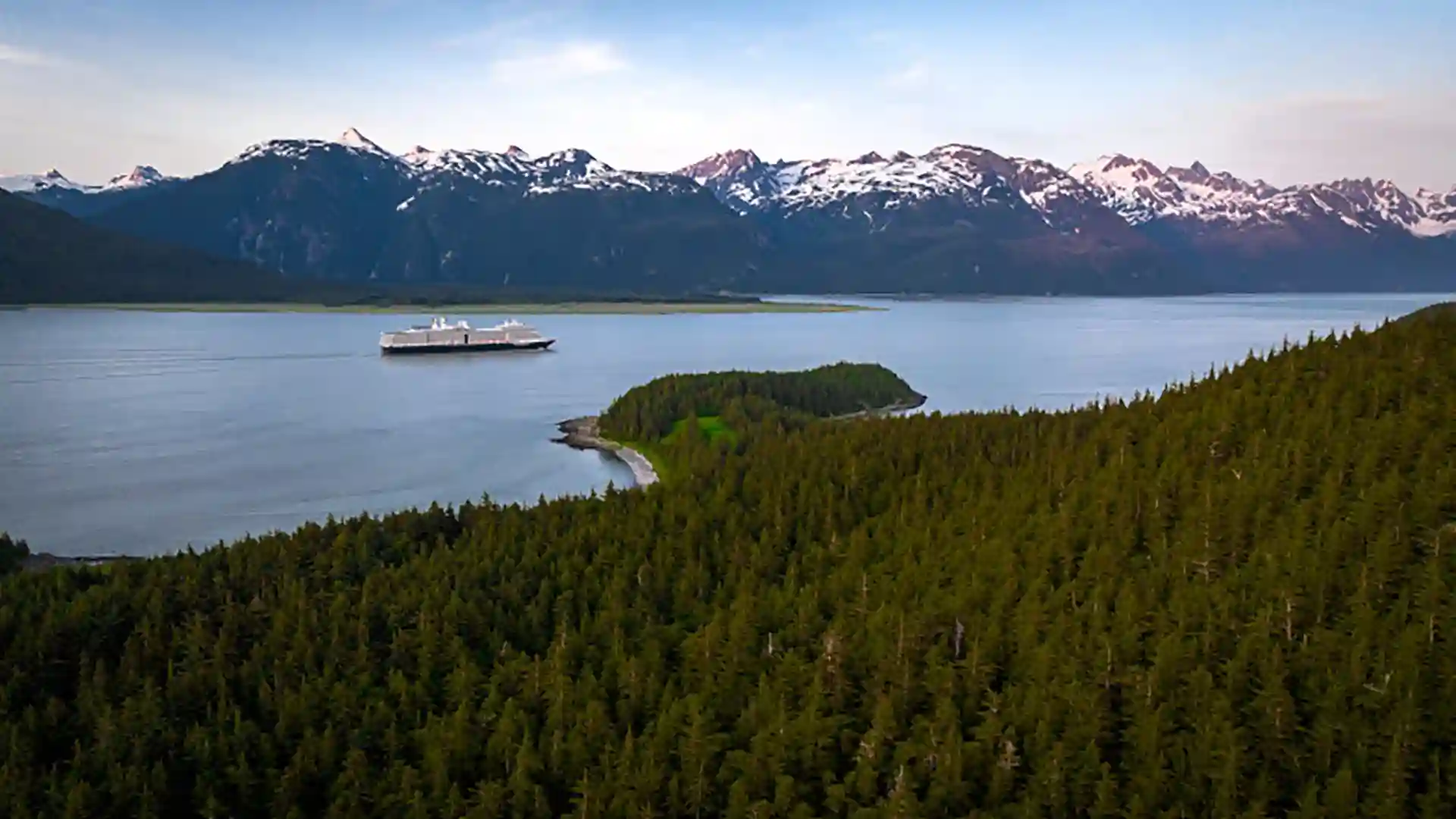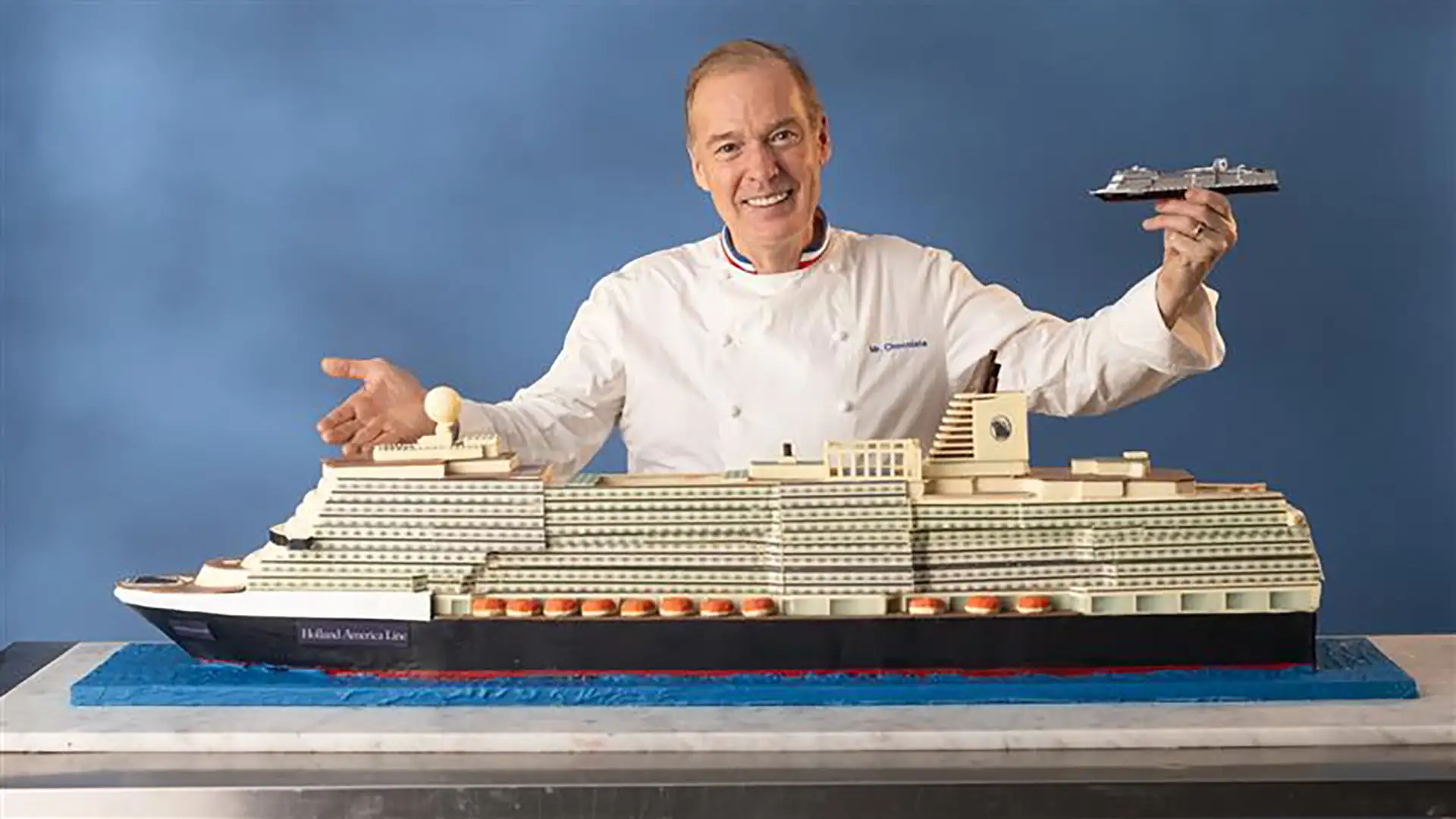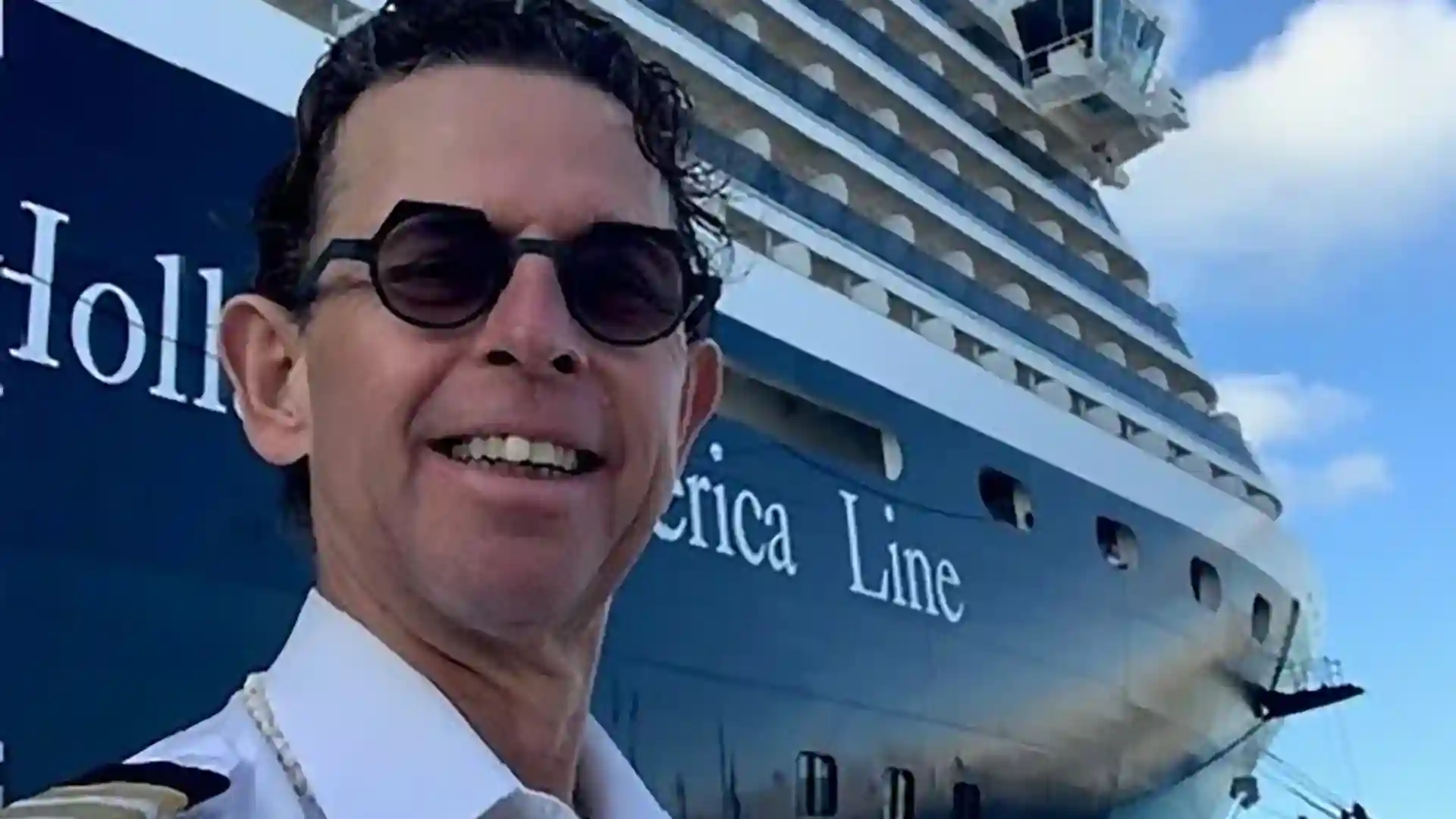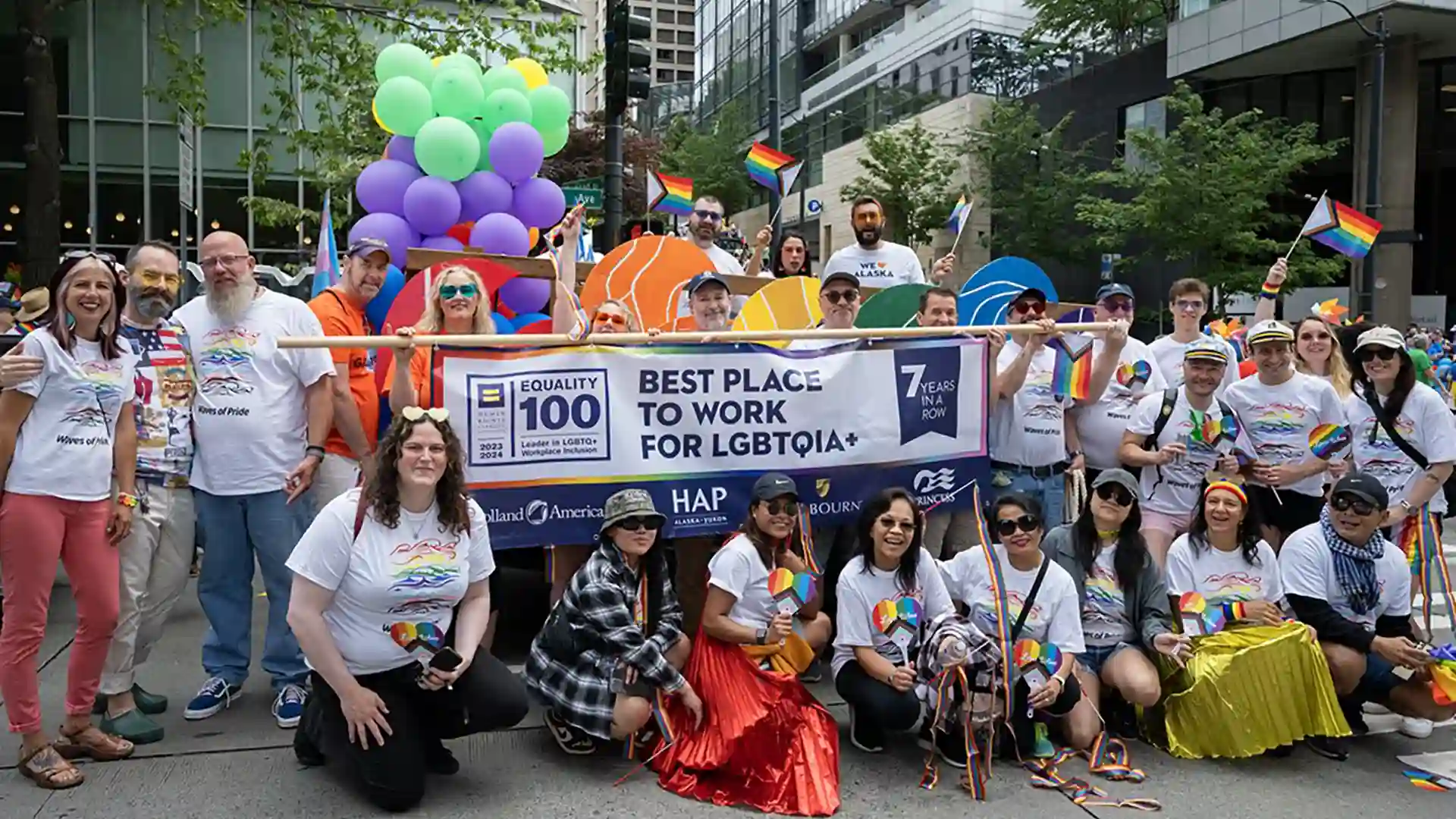Caring for Our Planet from Ship to Shore

When you cruise with Holland America Line, you’re not just sailing with a crew that genuinely cares for our guests and each other. Our legacy of care extends to every port we visit and every ocean we cross. That’s because caring for our planet is just as important as caring for the people who call it home. In honor of Earth Day, we’re highlighting some of the ways we’re focusing on sustainability from ship to shore.
Sustainable Seafood
We have continued to expand our local and sustainable seafood programs, and we’re proud to be the first global cruise line to receive distinguished certifications that underscore our commitment to sustainable seafood. First, we earned the Responsible Fisheries Management (RFM) certification, whereby all our ships cruising to Alaska serve fresh, certified-sustainable and traceable wild Alaska seafood. RFM is a third-party certification program for wild-capture fisheries. It’s aligned with the United Nations Food and Agriculture Organization (FAO) Code of Conduct for Responsible Fisheries – the most comprehensive set of international standards and best practices for wild fisheries. The RFM ecolabel includes the seafood product’s origin and tells consumers where their food comes from every step of the way, from reeling in the catch to delivering it to your plate on board.
In addition to our RFM certification, we recently became the first global cruise line to receive both Marine Stewardship Council (MSC) and Aquaculture Stewardship Council (ASC) certifications. This takes our Global Fresh Fish Program to the next level, showing our commitment to serving the highest-quality seafood that is sourced sustainably when wild-caught and raised responsibly when farmed according to the strictest global standards.
Food Waste Management
Minimizing and responsibly managing food waste helps protect and preserve our oceans. We have 75 biodigesters installed across our fleet, which use oxygen, water and microorganisms to break down food waste, help reduce methane and carbon dioxide emissions, and reduce the demand on the ocean for food waste decomposition. We’re also using food waste dehydrators as an alternate method of processing food waste, which is offloaded in port or consumed by onboard equipment. This helps reduce the volume of food waste by up to 90%. Both efforts support Carnival Corporation’s circular economy goal to achieve 40% unit food waste reduction by 2025 and 50% by 2030.
Shore Power and Advanced Air Quality Systems
We’re focused on decarbonization and are reducing our greenhouse gas emissions through fuel and energy-saving innovations, emission-reducing technologies and lower-emission fuels. Shore power and Advanced Air Quality Systems are two examples.
Our entire fleet at Holland America Line is shore power-capable, which means we can utilize shore power in ports that provide a dockside power source, enabling our ships to run all electrical equipment on board without using the ship’s engines. In addition, our Advanced Air Quality Systems remove 99% of sulfur dioxide and significantly reduce particulate matter from a ship’s engine exhaust. These systems improve air quality, meet or exceed regulatory standards, and support sustainable operations in the global shipping industry. Our efforts support Carnival Corporation’s climate action goal to achieve 20% greenhouse gas intensity reduction by 2026.
Reduction of Single-Use Items and Plastics
We’re focused on significantly reducing single-use items and plastics, replacing them with more sustainable alternatives throughout the fleet. For instance, we no longer use plastic stir sticks, straws, single-use food packets (such as ketchup, mustard and salt), or plastic retail bags. We also have reduced single-use individual amenity items, such as lotions and soaps, replacing them with refillable pumps. Recyclable glass and aluminum containers are the choice for water and soda.
These are just some of the ways we’re supporting sustainability efforts – all of which support Carnival Corporation’s sustainability goals and aspirations – caring for our planet from ship to shore.
How do you support sustainability in your community? Share in the comments below.




